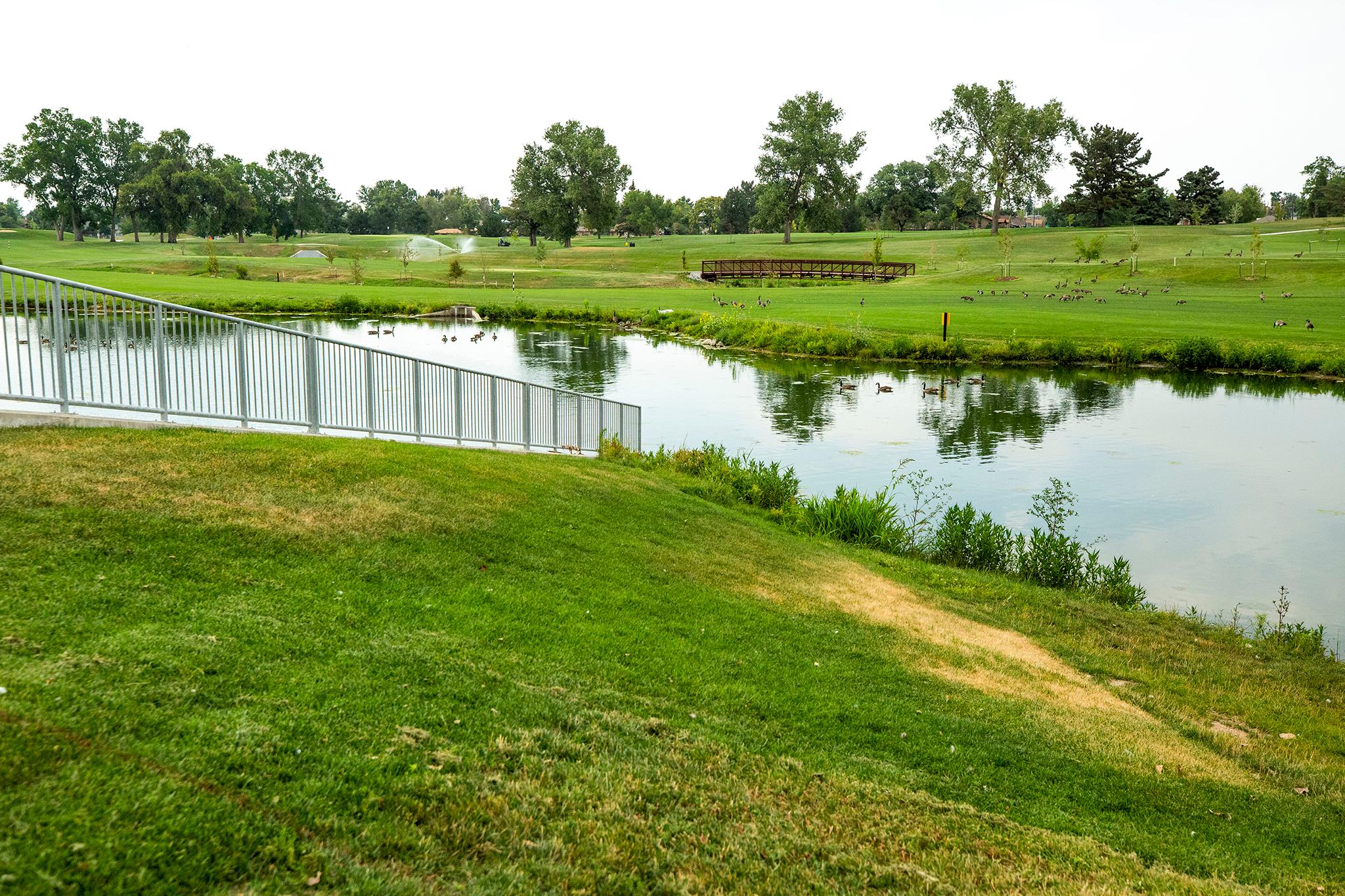When Sunday night's storm hit, realtor Bridget Walsh, her husband and friends were having dinner at the Japanese pagoda at the Dever Botanic Gardens. The rain doused them, and as they slowly made their way back to the building, they feared hypothermia. The rain wasn't the heaviest Walsh had seen, but it was coming down hard, fast and cold. Once they warmed up inside, Walsh drove home, making a special stop near the City Park Golf Course to see if the area was flooded.
Her questions: Did the $45 million redesign, which included adding a stormwater detention pond to the City Park Golf Course, actually work? Or was it the boondoggle she had long believed it to be?
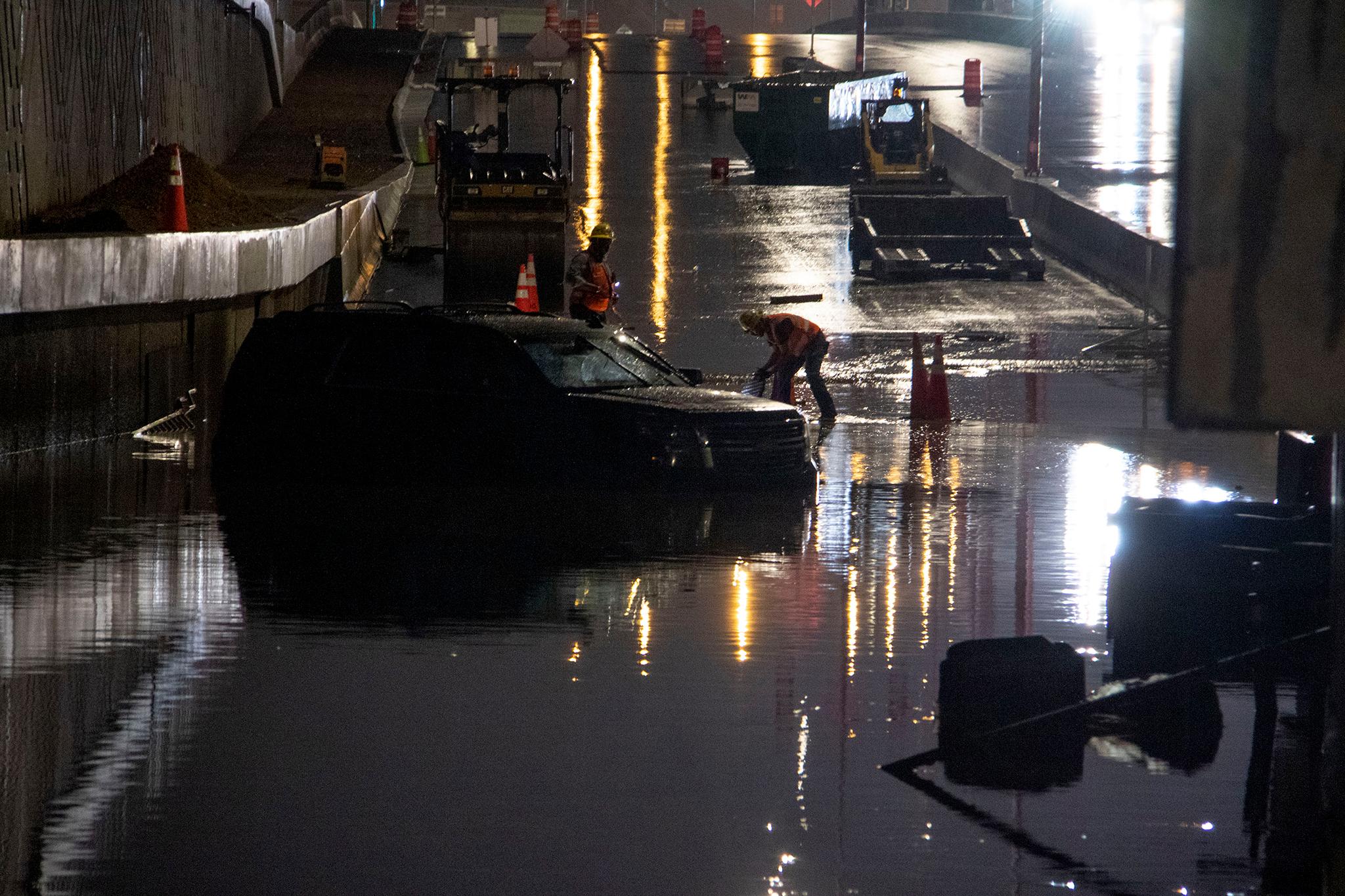
As Walsh drove by the course, up 23rd Avenue to her Park Hill home, she got a taste of flooding that was even worse in other parts of town.
Stormwater poured down the street, pooling at the bottom of the hill. Drivers skirted the newly created ponds on the road by driving onto the golf course lawn or the sidewalk, she said.
"Between 7:10 PM to 7:23 PM, City Park/Zoo received 1.73″ of rain - that is an incredible amount in such a short time," explained Department of Transportation and Infrastructure spokesperson Vanessa Lacayo in a statement.
A lake was forming on the golf course.
Residents complained of flooded basements.
Cars were stranded.
I-70 shut down both ways, as drivers were trapped.
Across the city, 78 panicked callers flooded the Denver Fire Department. Firefighters rescued 11 people, including three children, at I-70 and York Street; eight people, whose minivan had been stuck under the underpass at 38th and Blake streets; and three people at 46th Avenue and Washington Street.
At 23rd Avenue and Colorado Boulevard, several people were escaping their cars on their own, while the fire department helped one person. And at 14th Avenue and Krameria Street , firefighters assisted six people.
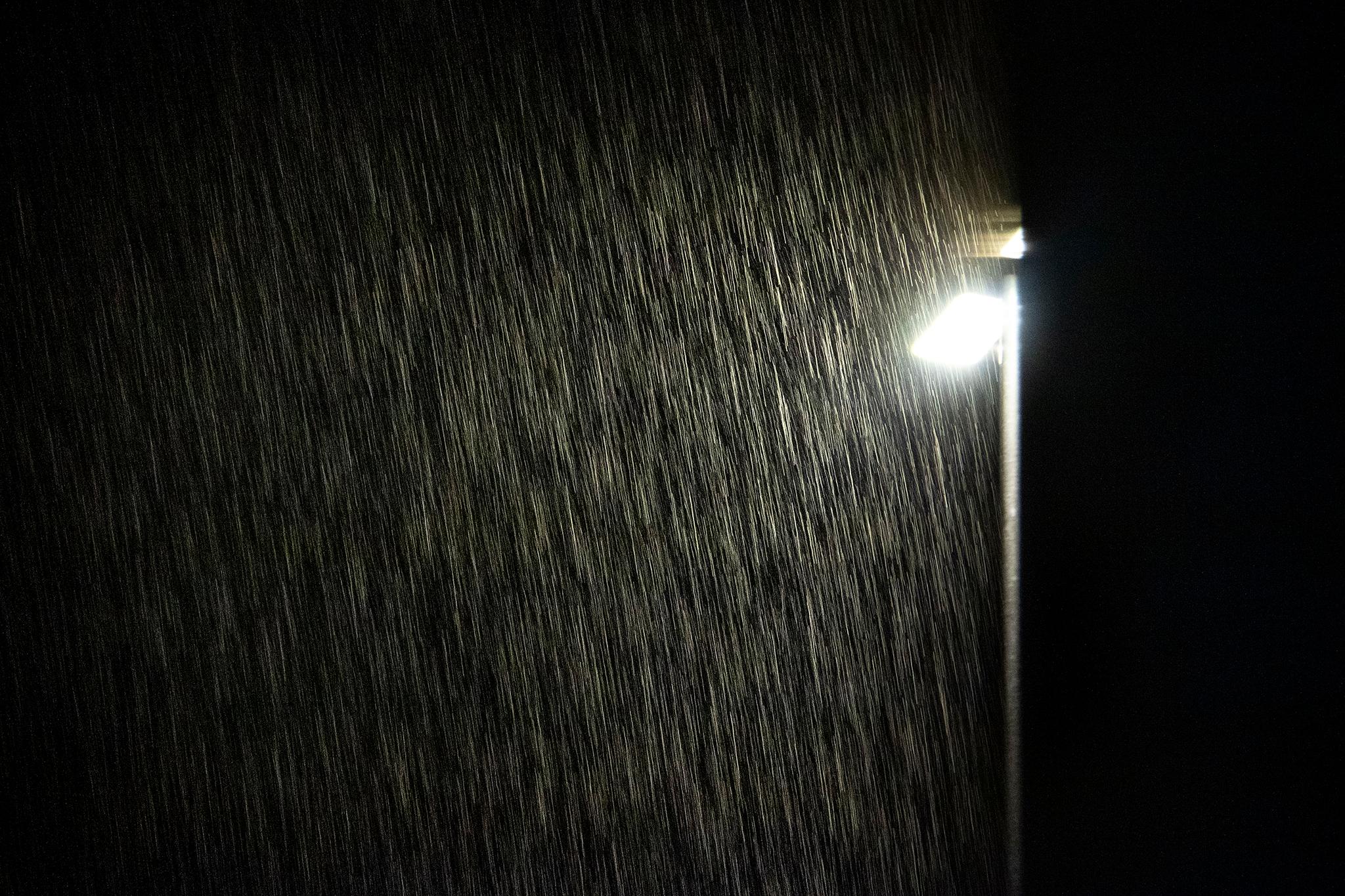
At Globeville Landing Park, debris - including a large, dead dog - clogged the filter on the overflow bay, pushing water over the park grounds and down the embankment, backlogging the South Platte River and risking erosion that could be catastrophic in worse conditions, said hydrologist Chuck Norris, who visited the site Monday morning.
So with all that flooding, did the City Park Golf Course detention pond work as planned and lessen the amount of water headed downstream? Yes... and it's more complicated than that.
According to Denver's Department of Transportation and Infrastructure, the City Park Golf Course stormwater detention pond prevented water from flooding downstream, serving its role in the Platte to Park Hill Project. That's the stormwater system that diverts water that would naturally be flowing down the now dried up Montclair Creek into pipes and troughs and into the South Platte River.
The City Park Golf Course detention pond gives excess water a place to hang out, when the stormwater system is overloaded.
"The Montclair basin - the largest basin in Denver at 9.5 square miles - does not have a natural open channel for stormwater to get to the South Platte River and therefore relies upon a man-made system of mostly pipes" explained Lacayo.

Kevin J. Beaty/Denverite
The stormwater comes from Fairmount Cemetery in Southeast Denver through City Park to the 39th Avenue Greenway and an open channel from there to the South Platte River near the Denver Coliseum.
"The Platte to Park Hill Project (P2P) - the largest flood protection project within the City - last night diverted heavy rain through the city as intended preventing significant flooding and damage to properties," Lacayo noted on Monday.
So why did some places experience significant flooding, stranded vehicles and emergency rescues?
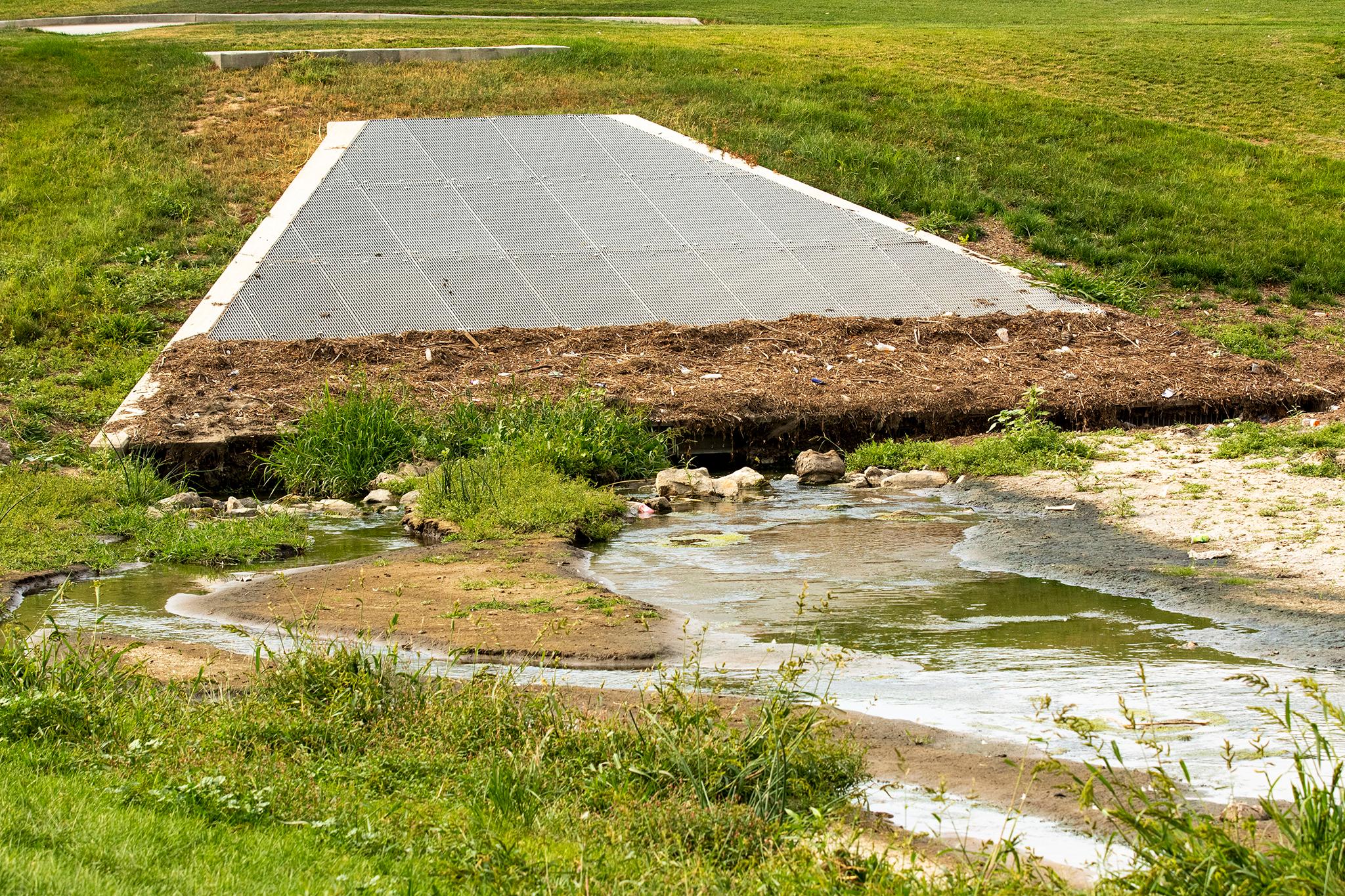
"A combination of older undersized pipes, natural drainage patterns, and urbanization throughout Denver places the city at risk for significant flooding, especially in the older parts of town," Lacayo explained.
As for why I-70 flooded?
The Department of Transportation and Infrastructure punted the question to the Colorado Department of Transportation, which said it has still not completed its floodwater drainage system on the I-70 site and that it would investigate what went wrong. The I-70 project's contractor, Kiewit, blamed faulty pumps that did not turn on automatically as they should have. Eventually, the pumps were turned on manually, and the water drained.
Civil Engineer Adrian Brown, a longstanding critic of both Denver's floodwater management and the I-70 project, said the city was not to blame.
"That the system did not 'save' I-70 is on CDOT, not Denver," he wrote his colleagues.
Water pooled where it was supposed to at the golf course, and while some bridges were covered, they were designed to be submerged, explained Denver Deputy Manager of Parks Scott Gilmore.
"We had a crapload of water in a very, very short time," he said. "It's not like it's all gonna magically move through the system... Even the system that we just built in the city can only handle so much water. And if you think about it, look at what happened. The highway flooded, but within two hours or so, the water was off the highway."
How does he explain the downstream flooding?
"The Platte to Park Hill program is far from complete," he said. "There's still other projects that need to be done to really make sure that the stormwater is getting where it needs to go."
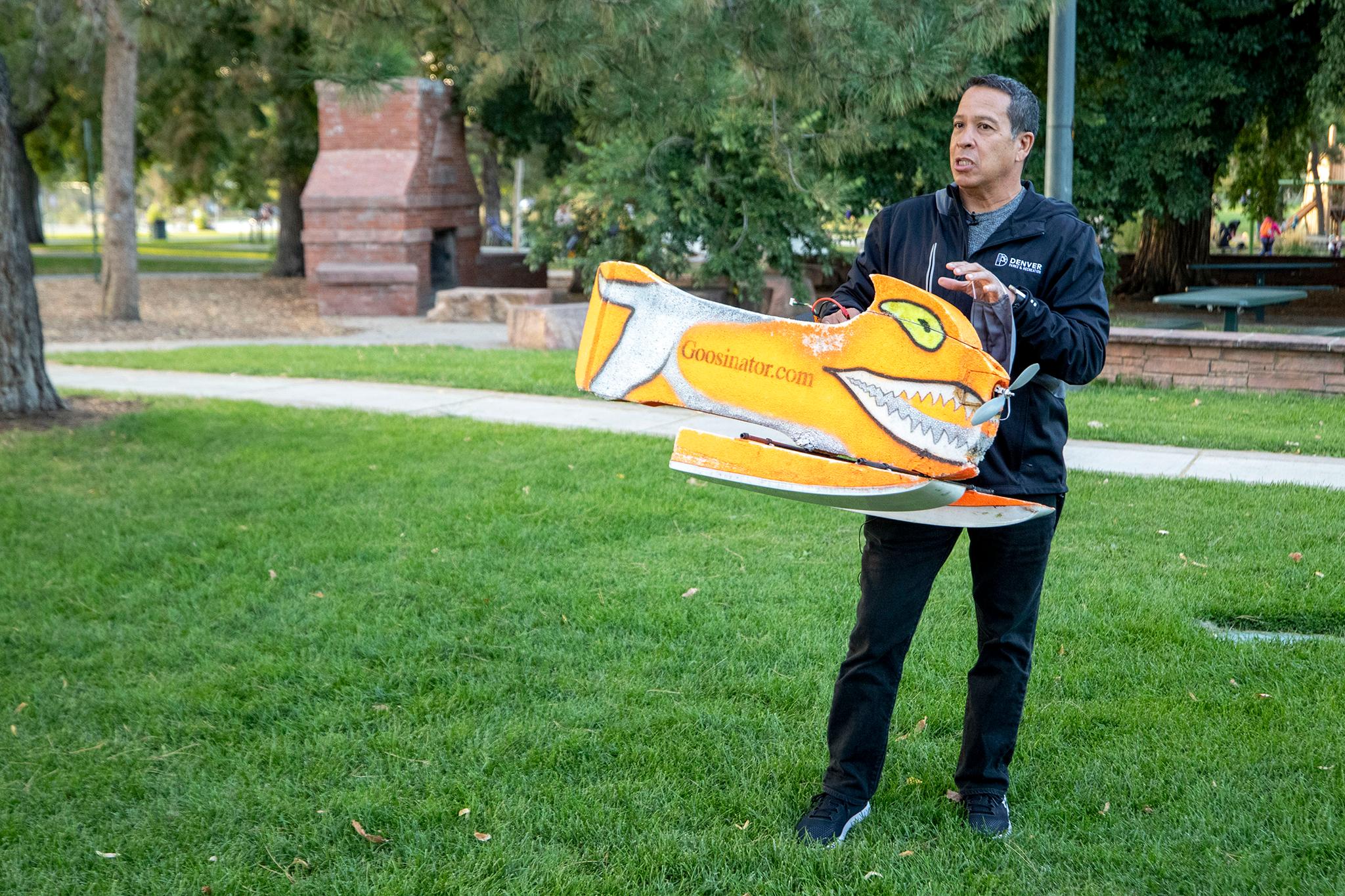
He's still proud of the parks department's role in stormwater management.
"The stormwater system that was built in City Park Golf Course worked fabulously. I mean, it was 100% full," Gilmore said. "So all that water that was on the course, that is water that was not in the community."
Hydrologist Norris, who examined the City Park Golf Course on Monday morning, noted the golf course's stormwater system actually didn't work out quite as planned.
A screen structure, designed to keep trash from the pipes that take the water from the golf course, clogged with grass, pine needles and other debris. That made the water rise higher on the course than anticipated. One golf hole was like an island, he said, and you'd need a canoe to paddle to it.
While the screen wasn't designed to clog, he said, the system failure did have a positive effect: It kept even more water from flooding the areas to the northwest of the golf course that were already flooded.
"To the extent that the objective of their design was to let water get out of their storm sewer system and out into an open area where it can spread out and temporarily fill up a pond to take pressure off the stormwater system, I would suppose it worked," Norris said.
But he doesn't think it's responsible to ignore the design flaws.
In a more serious storm, like the 100-year variety the system was built to address, a clogged screen could lead to water rising beyond the boundaries of the golf course and into the surrounding streets and homes.
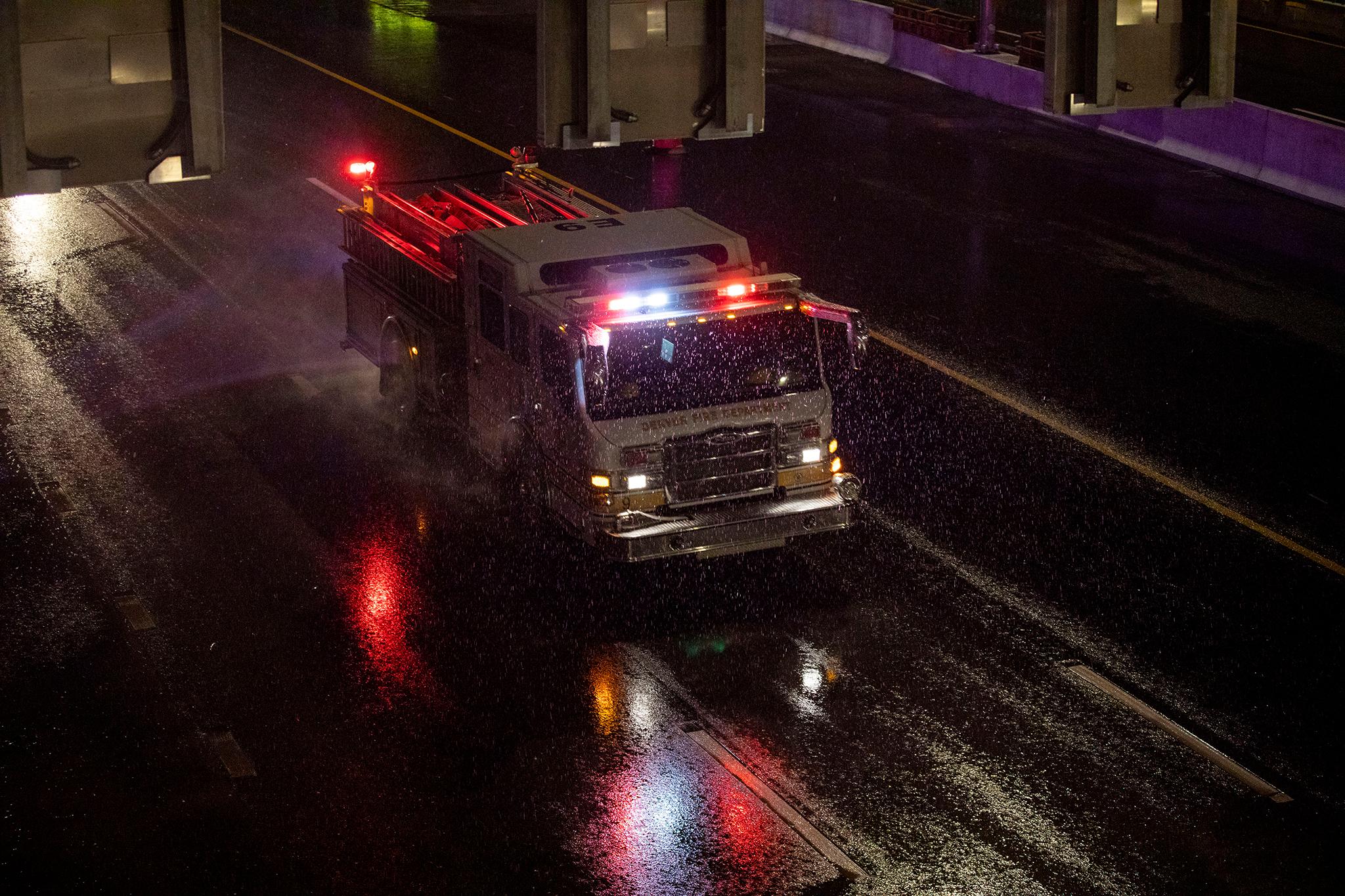
If the detention pond filled up entirely with around two inches of rain on Sunday, as Gilmore said, what would happen if there were closer to four inches? That excess water has to flow somewhere.
Norris is particularly troubled by the stormwater overflowing into Globeville Landing Park. While that makes sense during a massive flood, a couple inches of rain like Denver experienced on Sunday shouldn't flood the park.
"Show me in your design documents where you're supposed to overflow Globeville Landing Park with a storm of that size," he said. "And if it responds that way in a storm of that size, what is it going to do when you have a really significant flood?"
Estimates vary on how significant Sunday's flooding was -- but most agree it was trivial compared to what will likely come.
Both Norris and Brown, who argued the stormwater drainage plan was poorly conceived during the planning process, described Sunday's flood as a "five-year storm" -- meaning that it's the type of storm that comes twice a decade. It wasn't an everyday event, but it's far from unprecedented.
The Montclair basin system, which he estimated cost $300 million, survived Sunday's storm, but "only just," Brown wrote his colleagues in an evaluation of its performance.
The short-term storage capacity of the City Park Golf Course is too small for a more significant storm, he said. And he fears that if stormwater continues to flow over the embankment at Globeville Landing Park, the environmental damage could be significant.
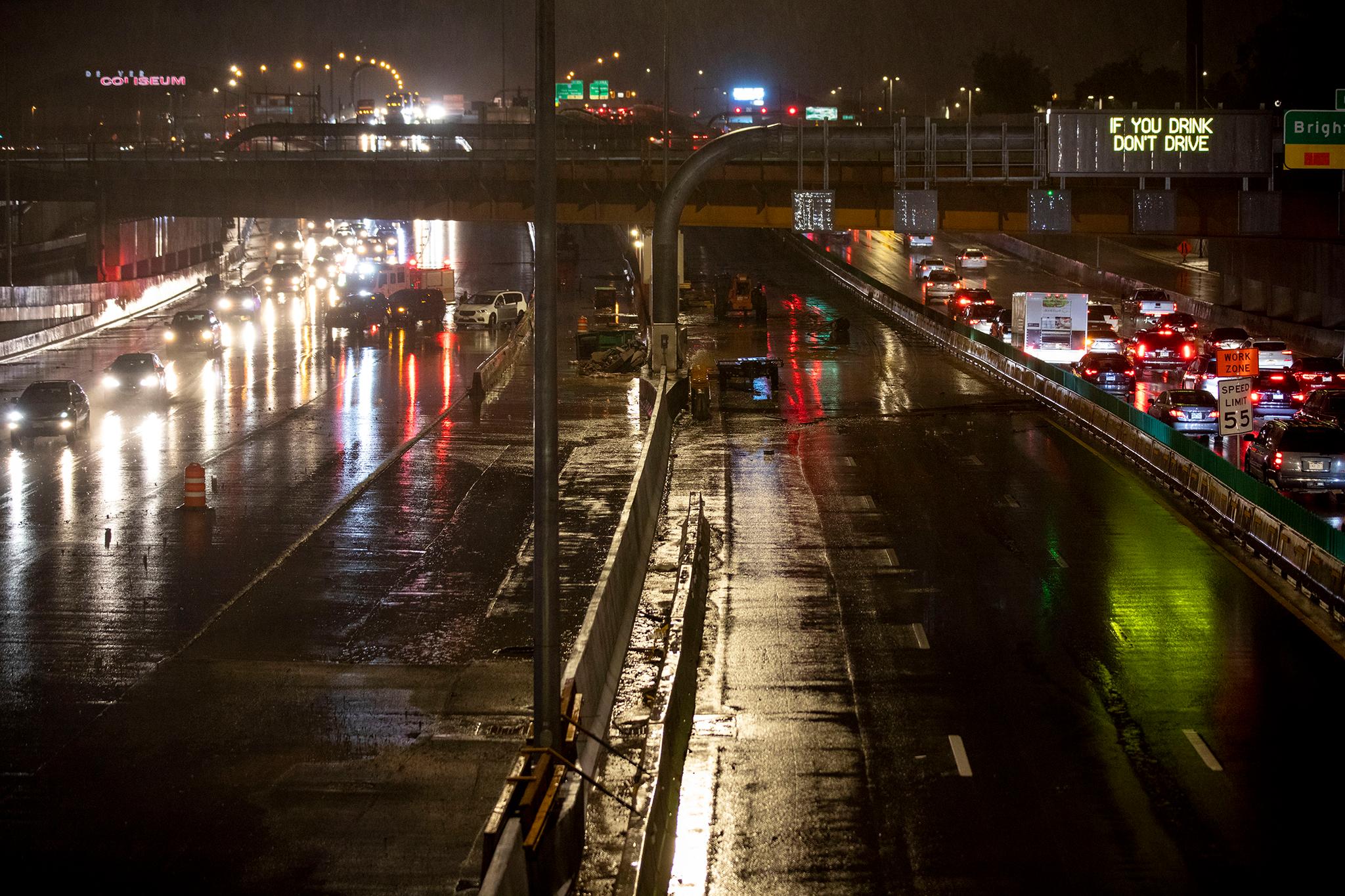
"My fear is that this 'dry run' has shown ... performance deficits in the system, which the engineering contractor community may see as an opportunity to build more concrete, and make more money," he said. "What I hope instead is that people will see that the floodwater that made the news was largely gone in an hour or so, and everything was pretty much dry in less than 24 hours."
The only facility he believed was impacted for longer was the City Park Golf Course, and there were a few other areas that needed to be cleaned.
"I would strongly recommend that the City clean up the remaining mess, and do absolutely nothing else," he said. "It's not a good system, but it is adequate to prevent significant harm to the City and its infrastructure."
Correction: An earlier version of this story stated pipes were turned on at the I-70. In fact, pumps were turned on. We regret the error.

